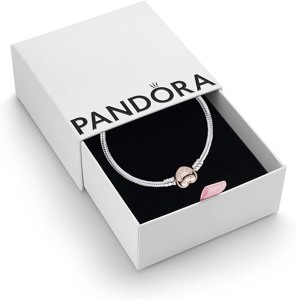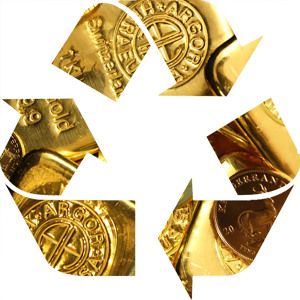Tavex uses cookies to ensure website functionality and improve your user experience. Collecting data from cookies helps us provide the best experience for you, keeps your account secure and allows us to personalise advert content. You can find out more in our cookie policy.
Please select what cookies you allow us to use
Cookies are small files of letters and digits downloaded and saved on your computer or another device (for instance, a mobile phone, a tablet) and saved in your browser while you visit a website. They can be used to track the pages you visit on the website, save the information you enter or remember your preferences such as language settings as long as you’re browsing the website.
| Cookie name | Cookie description | Cookie duration |
|---|---|---|
| tavex_cookie_consent | Stores cookie consent options selected | 60 weeks |
| tavex_customer | Tavex customer ID | 30 days |
| wp-wpml_current_language | Stores selected language | 1 day |
| AWSALB | AWS ALB sticky session cookie | 6 days |
| AWSALBCORS | AWS ALB sticky session cookie | 6 days |
| NO_CACHE | Used to disable page caching | 1 day |
| PHPSESSID | Identifier for PHP session | Session |
| latest_news | Helps to keep notifications relevant by storing the latest news shown | 29 days |
| latest_news_flash | Helps to keep notifications relevant by storing the latest news shown | 29 days |
| tavex_recently_viewed_products | List of recently viewed products | 1 day |
| tavex_compare_amount | Number of items in product comparison view | 1 day |
| Cookie name | Cookie description | Cookie duration |
|---|---|---|
| chart-widget-tab-*-*-* | Remembers last chart options (i.e currency, time period, etc) | 29 days |
| archive_layout | Stores selected product layout on category pages | 1 day |
| Cookie name | Cookie description | Cookie duration |
|---|---|---|
| cartstack.com-* | Used for tracking abandoned shopping carts | 1 year |
| _omappvp | Used by OptinMonster for determining new vs. returning visitors. Expires in 11 years | 11 years |
| _omappvs | Used by OptinMonster for determining when a new visitor becomes a returning visitor | Session |
| om* | Used by OptinMonster to track interactions with campaigns | Persistent |
| Cookie name | Cookie description | Cookie duration |
|---|---|---|
| _ga | Used to distinguish users | 2 years |
| _gid | Used to distinguish users | 24 hours |
| _ga_* | Used to persist session state | 2 years |
| _gac_* | Contains campaign related information | 90 days |
| _gat_gtag_* | Used to throttle request rate | 1 minute |
| _fbc | Facebook advertisement cookie | 2 years |
| _fbp | Facebook cookie for distinguishing unique users | 2 years |
Pandora Has Made the Move To Recycled Gold and Silver

In January 2024 Pandora, the worlds largest jewellery company by volume, announced it is now sourcing only recycled silver and gold for all its jewellery. Will this be the start of a large shift for other jewellers in 2024?
By using recycled instead of newly mined silver and gold, Pandora avoids 58,000 tons CO2 every year
(Pandora, 2024)
The Danish chain Pandora, which sells more than 100 million pieces a year, is the largest jewellery brand in the world by volume. Pandora is well-known for its reasonably priced sterling-silver charm bracelets of high quality 999.9 silver

Source: Pandora
This shift by Pandora reduces significant greenhouse gas emissions that are produced from the extraction of the raw materials. This is as mining requires more energy and resources than recycling. Recycled silver has a carbon footprint one-third that of produced silver, but recycling gold produces less than 1% of the carbon emissions from mining fresh gold. This is comparable to driving 6,000 cars around the globe or using 11,000 homes’ worth of electricity annually.
Read more on the topic here: Precious Metal Recycling
Precious metals can be recycled forever without any loss of quality. Silver originally mined centuries ago is just as good as new, and improved recycling can significantly reduce the climate footprint of the jewellery industry
CEO Alexander Lacik
Less than 20% of the silver produced worldwide today is derived from recycled materials, most commonly from abandoned electronics, broken jewellery, cutlery, manufacturing refuse, and other industrial waste. Recycled silver is gathered, then goes through a refining process to remove contaminants before being cast anew.

As the Responsible Jewellery Council Chain of Custody has some of the tightest recycling certification standards in the business, all suppliers have had to change the way they obtain materials.
To guarantee total segregation of mined and recycled metals throughout the whole supply chain, including sorting, melting, and manufacture, this has, for many, resulted in the introduction of novel procedures and machinery.
With enough time to allow for the depletion of current metal inventory, Pandora anticipates using 100% recycled silver and gold to produce all new jewellery starting in the second half of 2024.
In 2023, 97% of the silver and gold sourced for Pandora’s jewellery was recycled
The Future of Gold and Silver recycling
As of 2021, the estimated known reserves stand at 50,000 metric tons of gold, expected to sustain for approximately 15 years based on current extraction rates.
The data spanning from 2010 to 2022 reflects the gold mining industry’s trajectory as it embraces technological advancements, embraces environmental standards, and adapts to economic shifts inline with customer demand.
As the industry moves forward, it grapples with the intricacies of contemporary mining This is striving to harmonise efficiency and profitability with ethical and sustainable approaches, all while preparing for upcoming ventures such as deep-sea and space mining. This period signifies a pivotal phase in the industry’s development, laying the groundwork for its future direction in supply chain management.
Key Takeaways
Pandora’s recent shift to sourcing only recycled silver and gold for its jewellery marks a significant milestone in the industry. As the world’s largest jewellery company by volume, Pandora’s decision to prioritise sustainability over traditional mining practices sets a powerful precedent for long term decision making. By avoiding 58,000 tons of CO2 emissions annually, the company demonstrates the tangible environmental benefits of embracing recycled materials for their finished product.
This move not only reduces greenhouse gas emissions but in the bottom line it highlights the importance of responsible sourcing in the jewellery industry. With Pandora leading the way, other jewellers may feel compelled to follow suit, potentially sparking a larger shift towards sustainability in 2024 and beyond.
Furthermore, Pandora’s commitment to using 100% recycled silver and gold in all new jewellery by the second half of 2024 underscores the company’s dedication to driving positive change
By leveraging recycled materials and adhering to stringent recycling certification standards, Pandora sets a new standard for ethical and environmentally conscious practices in the industry when providing their goods and services.
As the world continues to grapple with environmental challenges, initiatives like Pandora’s serve as a beacon of hope for a more sustainable future. By prioritising recycled materials and reducing reliance on newly mined resources, the jewellery industry can play a vital role in mitigating its environmental impact and paving the way for a greener, more responsible future.

















